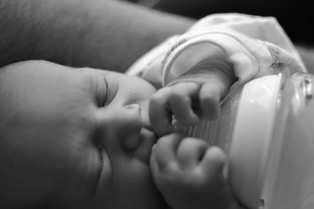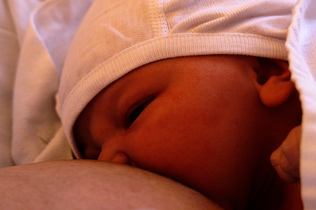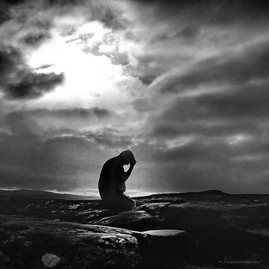- Home
- Contact
- Blog
- Doing and Allowing
- Philosophy of Pregnancy and Motherhood
- Working to Combat Maternal Guilt and Shame
- Publications and Works in Progress
- Motherhood and Defeasible Duties to Benefit
- Pregnancy and Moral Distinctions
- Breastfeeding Dilemma Workshop
- Mother Knows Best
- Infant Feeding
- Driverless Cars
- FeelingGoodAboutFeedingBabies
- FAH Advanced Seminar Series 2020
- RAPP Project
- RAPP Project
- MaMET
- Gender&BodiesWorkshop
|
It is National Breastfeeding Celebration Week, and boy could we do with some celebrating of all types of infant feeding! You only have to boot up your computer or flip open your smartphone to see the guilt, shame and judgment surrounding decisions about to feed a baby. Mothers (and in this case the blame falls squarely on mothers because men have a get-out-of-guilt free card: they don't have the right kind of breasts*) who feed their babies formula are hounded on social media, told that they are 'poisoning' their babies, that they are lazy or selfish, they are handed cards in cafes or feel like they have to lie to health visitors and midwifes to avoid seeming like bad mothers. Mothers who breastfeed are fine - so long as they stay at home, under cover and silent. If they breastfeed in public or dare to post a 'brelfie', they are exhibitionists/ show offs/ rubbing their achievements in the face of those who can't or decided not to breastfeed. A large number of sociological studies confirm this: whatever infant feeding decision mother make, they are likely to be prey to feel negative moral emotions. Guilt is overwhelmingly associated with formula feeding while the lucky breastfeeding mothers get a side order of shame with their lactation cookies. It's a mess! But what if philosophy could help? Perhaps surprisingly, I am convinced that sorting out some philosophical mistakes in our thinking about maternal behaviour can help with all this negative emotion. Drawing a distinction between 'moral reasons' and 'defeasible duties' can allow us to support and celebrate breastfeeding without condemning those who do not breastfeed to guilt and judgment. One of the problems here is the assumption that saying that breastfeeding is good and worth doing implies that those who don't breastfeed are less good or failures. Suppose we celebrate breastfeeding. Suppose we say that breastfeeding is beneficial for babies, or that it is a wonderful bonding experience. Suppose we congratulate those who struggle to breastfeed and get through the cracked nipples and bad latches and reach the stage where they can breastfeed with one hand, read to a toddler with the other and groom a pet with a comb held in their teeth - all at the same time. Why does it seem that when we do this, we're saying not breastfeeding is bad? I think part of it is that we are confusing two ethical ideas: reasons and defeasible duties. Defeasible duties are things that you MUST do unless there is some overriding reason not to. They are associated with requirements to justify and with negative emotions like guilt and blame. If I fail to live up to a defeasible duty, then I can be called upon to explain why: if I can't produce a darned good justification or excuse, then I'm in line for guilt and blame. I think we often treat mothers as if they have a duty to breastfeed: we get to ask them to defend their decision not to breastfeed and if they can't produce a good enough defence ("my nipples fell off!"), then we lay on the blame and guilt. But, in general, opportunities to benefit give rise to reasons not duties. It's great to run a marathon for Cancer Research, but no one gets to demand that I justify my failure to do so or to make me feel guilty if I don't. Even if we think that mothers have a special duty to benefit their children, this can't mean they have a defeasible duty to do every thing that might benefit their children. That would be intolerably demanding! So recognising the benefits should mean that we see reasons rather than defeasible duties to breastfeed. What does that mean? Well, let's go back to that marathon runner. We don't think that she's silly or crazy for spending hours training for the marathon. She can post a photo celebrating her run online without anyone saying that she's non-runner bashing. We might put community resources into helping her run. All this is because she has a good reason to run. And women have good reasons to breastfeed - and to celebrate their breastfeeding journeys. But we don't have duties to breastfeed, and this means that we don't get to judge other people for not breastfeeding or demand that they justify their decisions not to breastfeed. And whether you breastfeed or not should not be seen as determining whether you are a good parent - just like whether you run a marathon for Cancer Research shouldn't determine whether you are a good person. Mothers (and fathers) do so many different things to benefit their children. Breastfeeding is great - but parenting is so much more than how you feed your children.
Given this, you might wonder whether we should be celebrating breastfeeding mothers. Shouldn't we be celebrating all the mothers: the formula feeding mothers? the stay at home mothers? the working mothers? the Waterbabies mothers and the Sing&Sign mothers? Yes we should celebrate all those groups. But breastfeeding can be really hard, and there is still a lot of work to be done both in policy to ensure that all breastfeeding mothers get the support they need and when it comes to public attitudes to breastfeeding. So it worth dedicating a moment (or a week) to celebrate individual journeys and to lobby for change. But we still face the challenge of fixing those mistakes in the way we think about motherhood, so that we don't assume that if breastfeeding benefits babies then mothers have a duty to breastfeed. It's that move that makes breastfeeders be seen as show-offs and formula feeders as failures. And that isn't helpful for anyone! *It is actually an oversimplification to say that men don't have the right kind of breasts, because of course transmen may be able to chestfeed and there have have been cases of male lactation.
1 Comment
|
AuthorMoral Philosophy, Mother, and many other things. Archives
November 2021
Categories |
Proudly powered by Weebly
- Home
- Contact
- Blog
- Doing and Allowing
- Philosophy of Pregnancy and Motherhood
- Working to Combat Maternal Guilt and Shame
- Publications and Works in Progress
- Motherhood and Defeasible Duties to Benefit
- Pregnancy and Moral Distinctions
- Breastfeeding Dilemma Workshop
- Mother Knows Best
- Infant Feeding
- Driverless Cars
- FeelingGoodAboutFeedingBabies
- FAH Advanced Seminar Series 2020
- RAPP Project
- RAPP Project
- MaMET
- Gender&BodiesWorkshop




 RSS Feed
RSS Feed